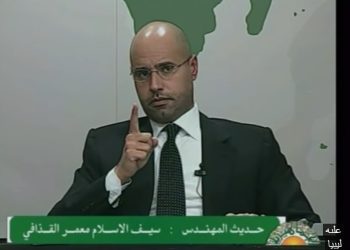By Sami Zaptia.

London, 28 July 2019:
A seminar on current economic policies and conditions and possible developments of the Libyan economy was held in Tripoli yesterday.
The seminar was organized and sponsored by the Tripoli Ministry of Finance and with the participation of the Tripoli Central Bank of Libya and the Tripoli Ministry of Economy and Industry,
The seminar reviewed the indicators of the Libyan economy and the applied economic financial, monetary, trade policies.
It also reviewed what has been implemented, and the procedures and measures applied within the economic reform program adopted at the end of 2018 by the Faiez Serraj-led Presidency Council and Government of National Accord.
Future expectations, especially the implications of determining the value of the fee on foreign exchange sales and its impact on all economic sectors and on the standard of living of the Libyan citizen and on the development of the state budget and the balance of payments, were also discussed.
Ultimately, the seminar made a number of recommendations, the most important of which are:
1. Activating the Economic Policy Committee and including accompanying policies such as social and labour policy.
2. Completing the economic reform programme, ensuring financial stability and sustainability.
3. Attention to the formation of the database, information and statistics of the authorities responsible for decision-making.
4. Enabling the private sector to participate actively in the exercise of economic activity and provide an environment for appropriate business.
5. Addressing the effects of the imposition of the fee on sales of foreign exchange.
6. Speeding up the approval of tariffs provided by the Ministry of Finance.
7. Start the establishment of the offices of the top taxpayer funders in accordance with the principle of the turnover in Tripoli, Benghazi and Sebha.
Business leaders, analysts and critics that Libya Herald spoke to regarding the seminar, were disappointed in it and its recommendations.
They say the Serraj administration, held back by the ultra-conservative Tripoli CBL, are unable or unwilling to take more bold moves to activate the economy. They are seen to be lacking vision and know-how.
Whilst they commend them for imposing the foreign currency sales levy, even though it was well overdue, they point out that subsidy reform in the form of a cash payment to Libyans is imperative.
This, they add, is needed to end the huge corruption of fuel subsidies through fuel smuggling.
They also point out the urgent need for dinar devaluation and the use exclusively of one exchange rate, again to stop state corruption and end market distortion.
Only by ending market distortion by the state can the private sector begin to grow and thrive to takeover most of Libya’s economic activity away from the dominant and corrupt Qaddafi era state sector, they add.
Moreover, too many of the seminar’s recommendations are no more than wishful bland statements lacking any detail or definitive action plan.
Many of them have been oft stated at official Libyan government events for decades with no real intention or know-how as to how to even begin to go about implementing them.
The current Tripoli Libyan authorities keep reactively hiding behind the current instability and upheaval, waiting for the “right conditions”, rather than proactively trying to break the current cycle with bold proactive, out of the box, economic ideas and visions that lead or create the “right conditions”.
It will be recalled that Libya’s eastern-based Central Bank of Libya also organized a workshop on the challenges of working with a dual banking system in Libya last Saturday.
The workshop also made numerous reform recommendations.
https://www.libyaherald.com/2019/07/24/eastern-cbl-workshop-on-dual-banking-system-makes-numerous-reform-proposals/








